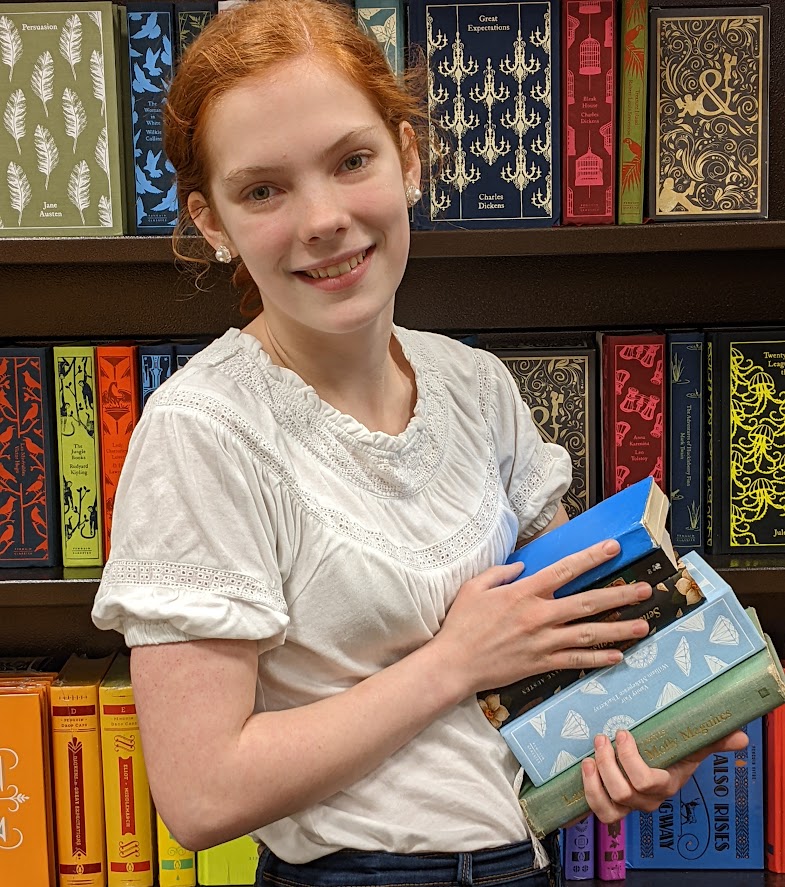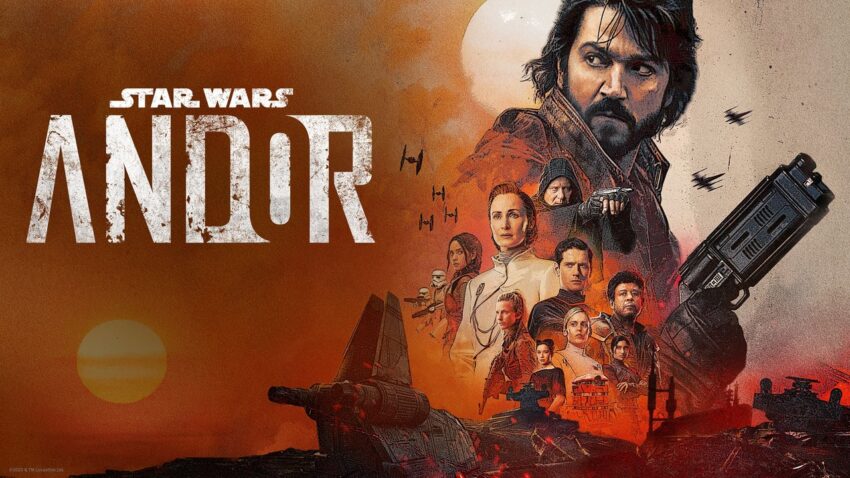Climaxes mean a lot more than you think. Just a few minutes of screentime or chapters in a book can completely change how viewers (or readers) consider the value of a story. And if they’re done well, a climax can elevate a rather boring plotline to become an incredibly valuable story.
Last week we looked at how the Skywalker Saga, one of the most successful movie franchises of all time, could ruin their epic climax by breaking promises they made to their viewers. We explored how placing characters in a prominent role and then failing to allow them to play a significant part in the climax is one of the easiest ways to deflate your ending.
But this idea is so powerful, I had to write another article on it. Specifically, what happens when a writer does give each of their main characters a role to play in the climax? How does that affect the tension, stakes, and interest surrounding the finish? Does it affect the theme, the characters, and the impact of the work? If so, how?
It turns out the answers can be found in another story set in the Star Wars universe, Andor.
Andor
Andor is an unusually slow-paced live-action Star Wars series. It has a remarkably simple plot, and the protagonist, Cassian Andor, fails to drive it forward. Set several years before the first Star Wars film, A New Hope, the series follows Andor’s quest for meaning and purpose in a world where he just wants to survive. He lives with an older woman, Maarva, who adopted him as a child and has raised him as her own son. As she grows older, the dictatorship known as The Empire exerts more and more control over their home planet of Ferrix. She grows more stubborn and insubordinate toward the Empire’s tyranny, which concerns Andor. He just wants them to be left alone on Ferrix — to work hard and enjoy each other’s company, living a simple life away from the trauma that plagued his childhood.
But unfortunately for Andor, compliance is not an option.
One night, two drunken Storm Troopers begin harassing him. Fearing for his life, Andor kills one of them impulsively, shooting the other to eliminate the witness to his crime. The series follows the first few months of his life on the run as he avoids the Empire and seeks to find the life he so longs for — one of simple joys.
The series of events that follow are straightforward: he is recruited as mercenary by the rebels, imprisoned by the Empire for a completely unrelated and false charge, and eventually escapes near the very end of the series only in time to hear that Maarva has died during his imprisonment. His only hope is that he might make it to Ferrix in time for her funeral. But he knows it will be dangerous. The local police force is still on the hunt for the man who killed two of their officers, and a powerful battalion of Storm Troopers has been sent by those who are beginning to suspect that Andor was hired out by the rebellion. Meanwhile, the rebellion itself infiltrates the planet, well-aware that Andor could be a double-agent — another loose end to be eliminated. His friend, Bix, has been captured and tortured for information because of her connection to him, and one particular agent of the Empire who has lost everything in his search for Andor has a personal vendetta against the man.
Every second in the series had actually been setting the stage for the best climax I’ve witnessed in Star Wars media, when every force from throughout the show converges on one location — Maarva’s funeral.
When You Fulfill Your Promises…
The plot and premise of Andor is incredibly simple. The protagonist himself is hugely uninteresting. He is a completely average guy who just wants to be left alone. The show can in some places feel unnecessarily slow, and there are such a vast amount of fascinating side-characters that you can often wonder why Andor is the protagonist. Why couldn’t we follow Mon Mothma, the secret leader of the rebellion, or Bix, with her fierce personality and complicated relationships? Or what about Maarva, with her fascinating past and dramatic character arc?
Because each of those choices were all leading up to the climax.
In the climax, every character plays a part. Every force, element, and theme crashes into a quiet funeral in such an explosive, dramatic way that it makes every second of buildup worth it. Every thoughtful scene, every mundane thought, every commonplace line pays off because it was building up to something incredible. Each character is stretched to their limit and faced with a choice — to fight for good or for evil, to submit to tyranny or risk everything they hold dear for the elusive ideal of freedom.
The writers knew exactly where they were going with the climax, and because of it, they made an incredibly simple story one of the best shows I’ve ever watched.
This is great news for those whose notebooks are scribbled full of modern-day adventures featuring average people. Your novel does not have to be deprived of an awesome climax because it features commonplace people in a setting that we all know well. Your story can have an ending just as climactic as a blockbuster Star Wars film.
In fact, it can have even more.
In terms of tension, execution, impact, and practically every other measure, Andor far surpasses The Rise of Skywalker. An action-adventure fantasy sci-fi film with fifty years of buildup and almost unlimited material available simply doesn’t hold a candle to a basic story with a climax that brings every promise to fruit.
So write a climax where every character gets the opportunity to take a stand in the middle of the chaos around them. Build up to that moment intentionally, with each of your characters’ great final acts in mind from the moment you introduce them until the very last page. Hint at the explosion just around the corner, and draw the tension gradually higher as your readers approach the climax.
If you do that, it doesn’t matter how ordinary your premise is, how mundane your protagonist seems, or how simple your plotline is. If you make everything matter and show your readers just how powerful every promise has been, it will all be worth it. And you will have written an awesome story.



What stories have you read that featured a simple plot, and yet generated tension and conflict through an extraordinary climax? How did they build up to that climax throughout the storyline?And how was this article? Too sweet? Too sour? Just right? Comment below and let us know!


Hi! My name is Mara, and I’m a Christian artist, violinist, and blogger. I remember the day that I decided that I would learn something new about what makes a good story from every book I picked up — whether it was good, bad, or a mixture of both. I use this blog as a way of sharing some of the tips and tricks I’ve learned, and highlight which books, cartoons, and movies have taught me the most about writing an awesome story.


I’m lovin’ life right now. 😎
How strange is that?! These two cinematic pieces seem like total opposites. (I haven’t seen Andor yet though, so I may be wrong.)
This will be great to keep in mind for a story I’m hoping to work on soon. Five dozen characters means a ton of side-plot opportunities.
Yes, I meant to highlight the opposites here. I’m glad they came through so well!
If you get a chance, you should absolutely watch Andor! I 100% recommend it, especially to a Star Wars fan! It’s one of the many shows that are making me begin to believe we’re entering a Dickens area in cinematic storytelling — right now the style seems to be slow paced, focusing on each character’s little choices and expressions, followed by explosive climaxes too fast to keep up with. So far, Andor’s the best one I’ve seen done!
Didn’t realize that was a Dickens thing.
I’ll keep that in mind! We’re starting Tales of the Jedi tonight, but maybe we’ll do Andor next…
Yeah, Dickens is known for using so many words that some people have come to the conclusion he must have been paid by word count. He wasn’t, but that same sort of style seems to be showing up in TV series’s these days. And it’s not always a bad thing, either!
Yay! There’s so much good storytelling in that show! I hope you get a chance to enjoy it!
Wow, you people are Stars Wars mad!! 🙂 Hope you enjoy the film. Great article, Mara!
Thanks, Willow!
I wouldn’t say I’m quite Star Wars mad. It’s not my favorite franchise, but some individual pieces of media have really incredible storytelling. And for those that don’t — well, I learn a lot from them. I think the contrast between these two specific pieces of Star Wars media are so interesting. I had to write at least two articles on it!
I miiiiiiiiiight be a liiiiiiitle Andor mad, though. It’s one of my top favorite shows, for sure!
Haha! No, I’m not condemning you! I’ve only seen the three original movies, and I really enjoyed them. I’ve noticed that quite often the older movies have great plots and characters, whereas some of the later ones may have really good special effects, et cetera, but lack any true depth or soul. It’s so interesting seeing them compared! 🙂